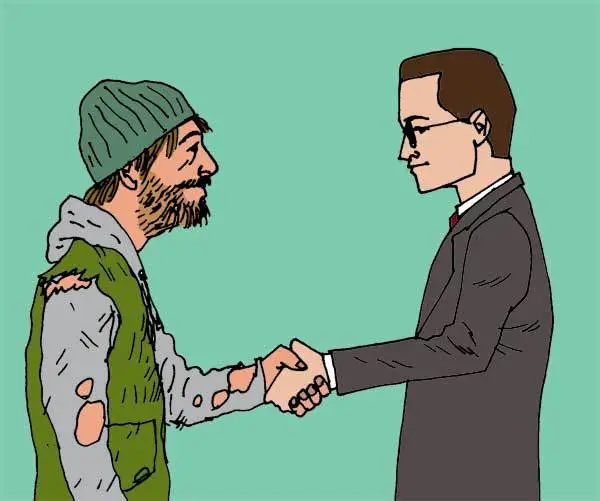A dignified human being is more responsive and responsible for life. It is the positivism of dignity that supports them and helps them lead a healthy life. While the lack of dignity has its own repercussions, it is on us, as a society, to minimize such circumstances and promote a healthy environment for everyone.

Survival of the dignified
The word “dignity” stands for the worth of a person. It is assigned to support the value of any individual held on this good earth.
To be a dignified human does not mean a person has to be of a certain power and hold a position. It means that every life lived on this earth is worth every inclusion, irrespective of their status in the world.

While people intend to live a life of dignity, it also depends on their surroundings and their circumstances. We, as a society, bar people from the value they deserve for being human based on their difficult times and tight situations.
But we all know that the world is built on the survival of the dignified. It is the dignity they hold personally without giving in to their tests and tribunals of the world, and also earn it from the people that surround them, that causes the positive rush of dignity.
Global Dignity Day
As the world progressed through multiple eras of seclusion and inclusion, it also saw the drawbacks of society’s loopholes.
No matter how far we might have come with AI and ML, policies to supplant good health and medicine to support them, we are still behind in allocating people their birth right to dignity.
In 2005, Prince Haakon, the crown prince of Norway, through his international non-profit organisation Global Dignity, founded this day, the third Wednesday of every October as Global Dignity Day, at the World Economic Forum.

This is a step forward towards the inclusion of everyone, specifically indigenous individuals, who are always under fire for accusations and exclusion.
This year, the reports claim a collaboration between Prince Haakon and Malala Fund’s co-founders Ziauddin Yousufzai and Katelynne Herchak, where a virtual meet at 10 different sites in 9 countries was attended by people of various levels—from students to volunteers, influencers, writers, artists, etc.
The aim of this day is to globalise the aspect of dignity and worthiness instead of just worldliness.
Cleanliness is next to Godliness
As the saying goes, “cleanliness is next to Godliness”, as a society, we need to understand the concept behind it and implement it in our lives.
Although this proverb might have been pointed at the cleanliness of our clothes and our surroundings, it does not inhibit us from using it to clean our mindset and produce good action.

When we clean our minds of all the negative ideas and thoughts, it shows in our actions. These actions are what make us more humane towards other humans.
Our inclusive behaviour is the justice granted by us. We should never practice exclusivity or inclusivity.
Cleanliness of mind paves the way for a stable, healthy, and growing society. We need inclusion.
Dignity is not a demand; it’s a right
Prince Haakon was right to recognise the lack of dignity approved by the elites of the world for marginalised individuals. To understand the plight of such people and bring this information to the forefront is a noble act.
While we live and thrive in a world that runs on demands met, we need to understand that dignity is not a demand. It is a human right and should not be deprived of it.

Human rights are meant to uphold the dignity of every person on this planet. As individuals who form communities that further create culture and society, we need to promote the need to understand such shocking exclusive practices.

The world is full of diverse individuals, and everyone has the right to a dignified life. With problems such as financial restraints, war, and epidemics of various diseases, life is hard enough as it is. We should make it easier by reducing the loss of dignity.
We should not make a demand out of something that is a right, but instead tread accordingly and change the narrative.
READ MORE
The situation in Kherson is ‘tense’, according to the Russian commander













